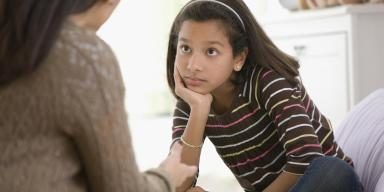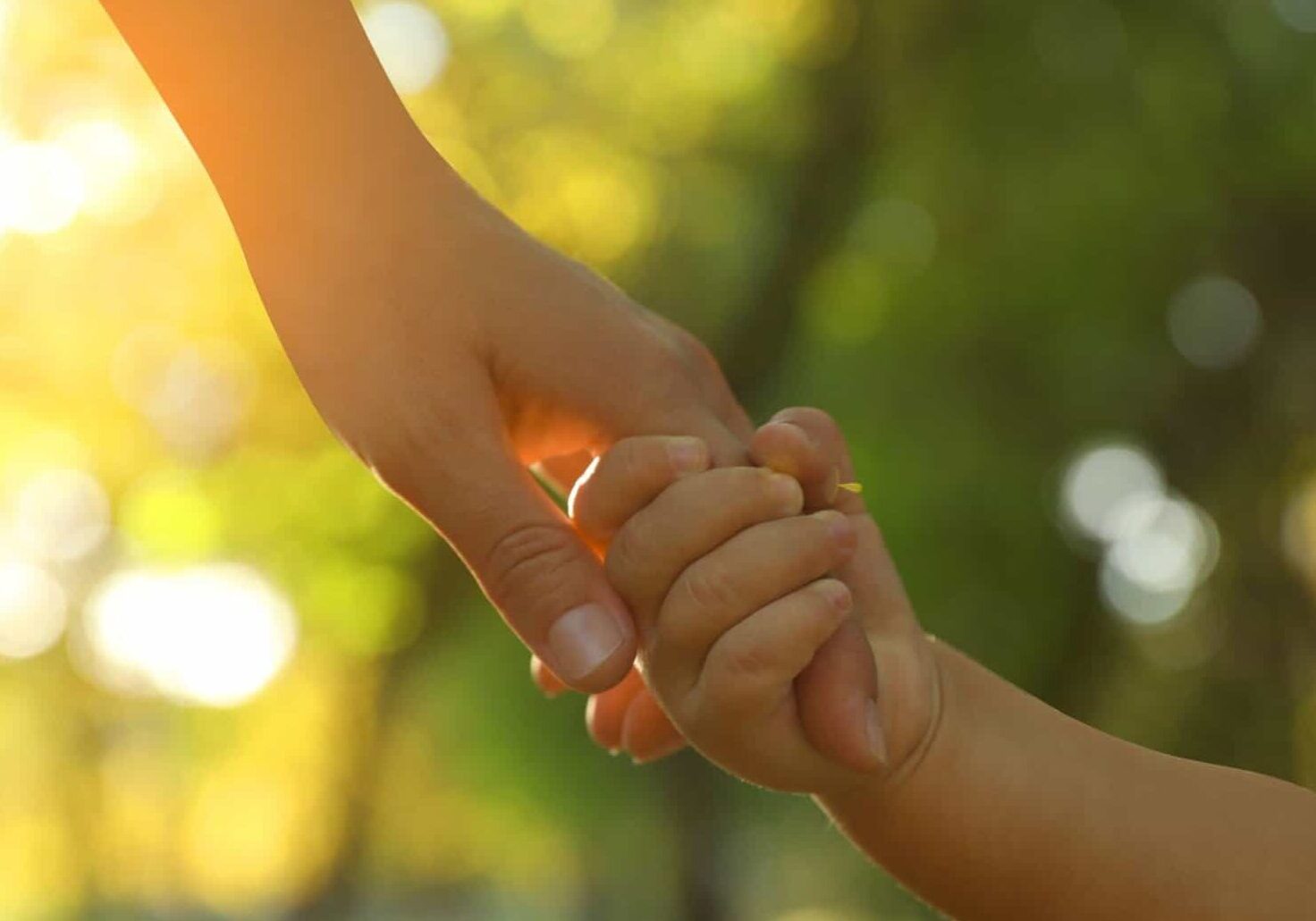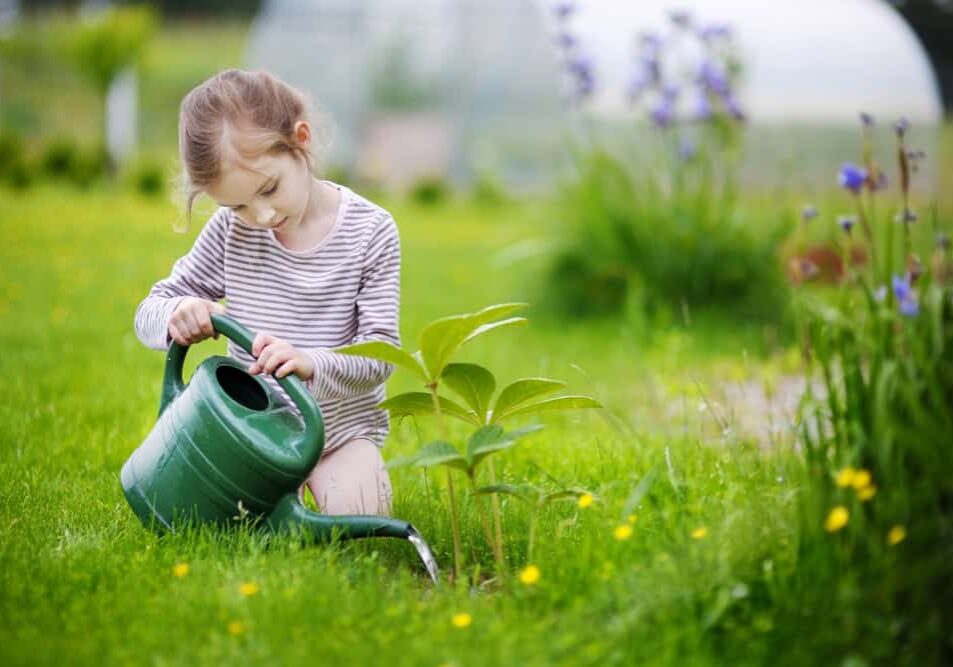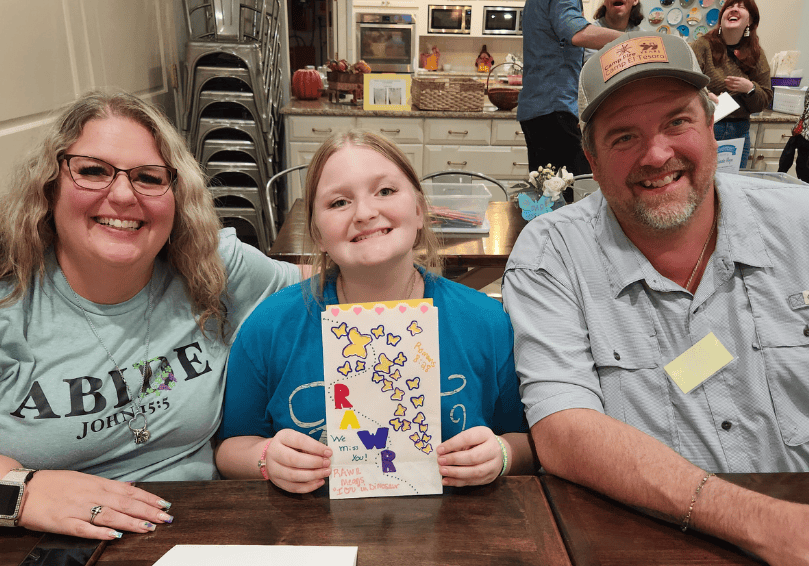It is far too often that we turn on the news and hear of scary events in our world. Many of these events unfold live in our homes as we crowded around the TV screen and social media. One of the biggest questions parents have is: how do I explain this type of event to my child? If you are struggling with this question, you are not alone. Talking to your child about unimaginable tragedy can be difficult. You are trying to cope with what you’ve just seen, and now you are trying to figure out what to say to your child. The good news is there are many resources out there, and we want to make sure you have the best recommendations.
Should I tell my child what happened?
Many parents want to avoid talking to their children about mass shootings. The reasons are understandable. “I don’t want to upset my child” and “My child is too young to understand” are common fears. But here’s what we know: children are going to hear about the tragic events that happened in Dallas from social media, on TV, or from friends. It is so much better for them to hear this information from you, hopefully, first.
Talking to your child about a tragedy can help him or her understand what happened, how to feel safe, and then your child can begin to cope.
How do I start the conversation with my child?
Take time to think about what you want to say. You know your child better than anyone, so choose a time when your child is most likely to want to talk. Ask your child what he or she already knows about the tragedy. Ask your child what questions or concerns he or she already has. Let your child’s answers guide your discussion.
How do I explain the tragedy to my child?
Tell the truth. Focus on the basics, and avoid unnecessary and graphic details. Don’t exaggerate or speculate about what might happen. Avoid dwelling on the scale or scope of the tragedy. Listen closely to your child for misinformation they’ve received and their underlying fears. It is crucial to provide accurate information. When we create secrets, we teach children there is something greater to fear. And sadly, we teach them that we can’t be trusted.
Your child’s age will affect how he or she processes information about the tragedy. Consider these suggestions:
- Preschool children. Get down to your child’s eye level. Speak in a calm and gentle voice using words your child understands. Explain what happened and how it might affect your child. For example, after the tragedy, your child may notice adults are sad and worried. Share the steps that are being taken to keep your child safe at home and places you frequent (school, grocery store, church). If your child likes to cuddle, gently hold and rock your child and give hugs.
- Elementary and early middle school children. Children in this age range might have more questions about whether they are truly safe. They might need help separating fantasy from reality. Provide specific reminders about people and things that keep them safe.
- Upper middle school and high school children. Older children will want more information about the tragedy and the community response. They are more likely to have strong opinions about the causes, as well as suggestions about how to prevent future tragedies and a desire to help those affected. Let your older child talk through their fears, concerns, and ideas for fixing the problems that brought about the tragedy. If your child does not want to talk about what happened, that is okay too. Remind your older child: the door is always open to talk to me about this anytime you want to. Then be ready to stop what you’re doing and listen when the time comes.
- Chronic Trauma. If your child has experienced previous trauma, remember that he or she might be at greater risk of an intense and prolonged reaction. If you’re concerned about your child’s reaction, talk to a trusted mental health provider or the counselors at The WARM Place.
What can I do to help my child cope?
There are many specific things you can do to help your child process what happened.
- Remain calm. Your child will look to you for cues about how to react. It is okay for children to see adults sad or crying, but you may need to excuse yourself if you’re experiencing intense emotions.
- Reassure your child of his or her safety. You may be fearful of your safety but you can say to your child, “I will always do everything I can to keep you safe.” Point out specific factors that ensure your child’s immediate safety and the safety of the community. Consider reviewing your family’s plans for responding to a crisis. If you don’t have a family plan, create one together so your child can be part of the process.
- Limit media exposure. Don’t allow children to repeatedly see or hear coverage of the tragedy. Even if your young child is engrossed in play, he or she is likely aware of what you’re watching, and might become confused or upset. Older children might want to learn more about a tragedy by scouring the Internet or watching TV. However, avoid repetitive loops of news information once you have the facts. Consider checking Twitter privately on your own device and leaving the TV to non-crisis content. Constant exposure to coverage of a tragedy can heighten anxiety.
- Maintain your family routine. Keep up your family’s usual routine including meals, social events, and bedtime. You can remind your child of all the things that will be the same. Sometimes children just want assurance of simple things like “yes we will get up in the morning and have breakfast like we always do.” Consistent, normal routines help children feel safe.
- Spend extra time together. Special attention can also increase your child’s sense of security. Spend a little more time reading to your child or tucking him or her in at night.
- Encourage the expression of feelings. Explain that it’s okay to be upset or cry. Let your child write about or draw what he or she is feeling. Instructions can be simple, such as, “Draw how you feel” and “Draw what you’re worried about.” Physical activity may also provide an outlet for upsetting feelings.
- Do something for those affected by the tragedy. Consider ways that you and your child can help victims and their families. For example, your child may want to go to church to pray or write thank-you notes to first responders.
- Take care of yourself and your emotions. Lean on your support system. Talk about your feelings when you are physically away from your children. Remember, their little ears perk up more when they hear you whisper on a phone call or in another room. It’s also important for you to limit your own exposure to the tragedy. Taking an emotional time out is okay, it’s nothing to feel guilty about. Turn off the TV. Get off Facebook. Do something else. The news will still be there when you log back on.
- Let your child guide you to their solution. It’s always okay to ask your child “what would help you feel safe?” Or “what do you need right now?” Your child may already know what assurance they need from you. Allowing them to identify their need and tell you will increase their empowerment and ability to cope. If your child says “I don’t know what will help me” know the feeling of uncertainty is okay too. You can tell your child, “That’s okay. We don’t always know what we need right away. When you think of what might help you, you can tell me.”
- Don’t process your fears with your children. You have your own questions, fears, and feelings of sadness and anger. While your feelings are okay too, it’s not good for children to take care of their parents’ emotions. Don’t put your children in the position of listening to your fears and painful emotions about the tragedy. They love you and they will try to take care of you. That will hinder their own recovery.
Remember, your child is looking to you for the truth and feelings of safety. There is no perfect thing to say, and responses will differ depending on your child’s age, developmental level, and prior exposure to trauma. But you can grieve together and do positive things together.
And sometimes we all need a reminder like this one from Mr. Rogers: “When I was a boy and I would see scary things in the news, my mother would say to me, ‘Look for the helpers. You will always find people who are helping.”
All my best,
Lisa Nichols, MA, LPC-S
Program Director



